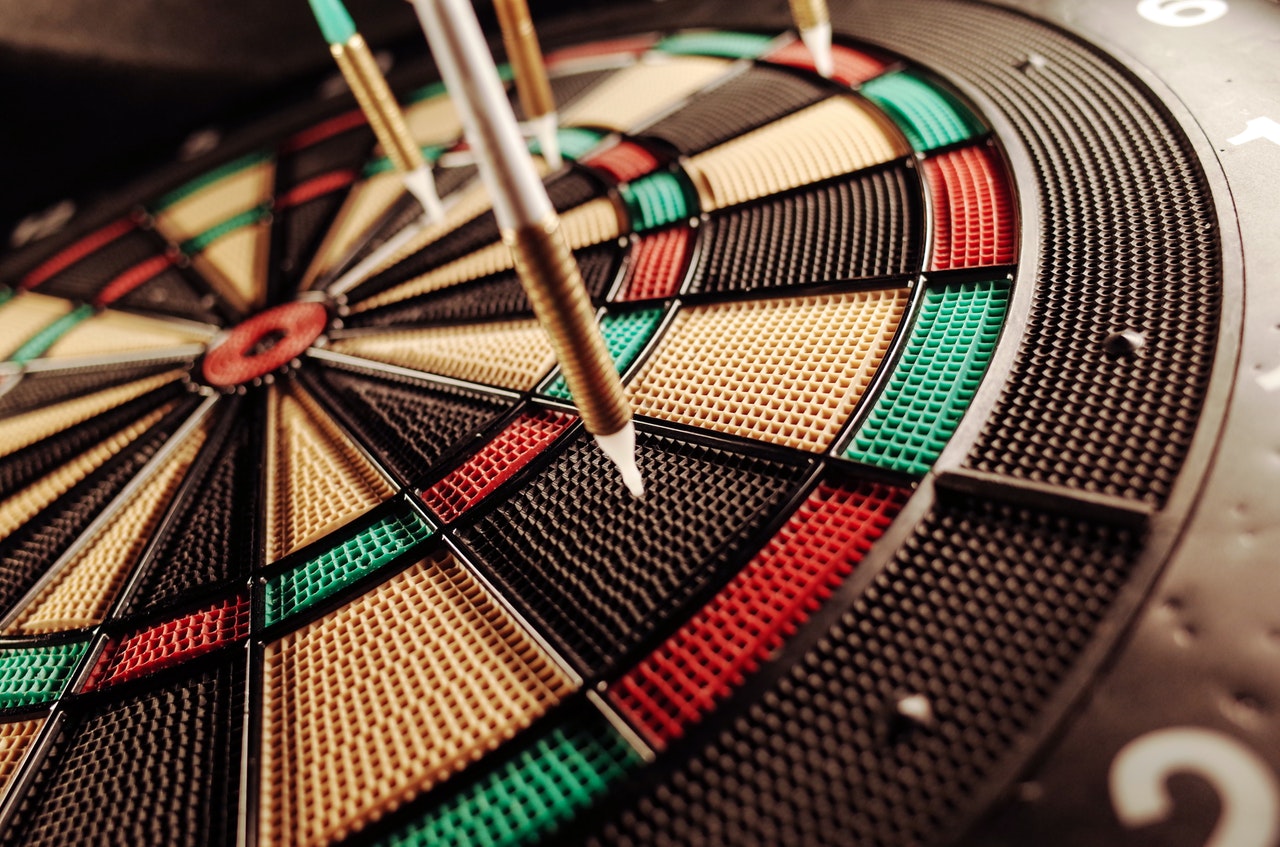The goal-setting process has been an important part of my life for over 30 years. At the 2017 TruMethods member conference, Schnizzfest, our guest speaker was Matt Michalewicz, the author of Life in Half a Second: How to Achieve Success Before It’s Too Late. Matt is an amazing speaker and a great person, and his message at the conference was very powerful. In fact, I was so moved by his presentation, I have asked all my TruMethods members to read Life in Half a Second and implement the goal pyramid process that is taught in the book.
Your self-image determines most of the outcomes in your life: the amount of money you make, the success of your company and the quality of your relationships with family and friends. Your self-image determines your happiness, level of contentment and even your health.
Yet this important force in our lives is often shaped by people and circumstances that we don’t control. Doesn’t that stink?
Shaping Self-Image Through Goal-Setting
The process of setting and striving for goals is one way to help influence and shape self-image. This is a complex process. My hope is that this, like other important things, is something we will grow in understanding together.
Everything I have achieved in my life is related to my understanding of the goal-setting process. What I have failed to achieve is based on my lack of understanding of the process. I’m not just talking about success in business — that’s part of the picture but not the center. I am talking about how you feel every morning when you wake up, and how you make others feel.
So why does the process of setting, striving for and achieving goals affect our self-image in a positive way? Because when we feel that we control the outcome of important things in our lives, we feel good about ourselves.
None of us wants to think we’re dealt a hand of cards and our only option is just play them the best we can. But think about it. How many times do we think it’s employees, customers, the economy, competition or a vendor that is standing in the way of us succeeding? The goal-setting process, once it is really understood, begins to minimize the effect of these external influences and puts our future back into our control. This is why establishing worthy goals can change our lives.
Making Goal-Setting A Habit
I always say that nothing succeeds like success. Setting and reaching goals is a habit. Unfortunately, so is not setting or reaching goals.
Here is a simple example: I’ve had employees through the years who had trouble getting to work on time. We tried threatening them, writing them up – with no success. Then I explained the issue was not just the 10 minutes of productivity every day; what was more important was that the trait underlying the lateness was holding them back. They knew they should be there on time and they could not get themselves to do it; they could not depend on themselves.
I would challenge them to set a goal of arriving 10 minutes early to work for three to four weeks. At the end of the experiment, they’d tell me how it affected them. They always said they felt great about the change. Setting and achieving even a small goal changes us.
Is It All Just Luck?
At some point we all ask ourselves: How did I get here? How and why did my life turn out the way it has so far? For better or worse, the answer is that your current condition is based on you — your goals, or lack of goals, your priorities and your response to life events. This can be really hard to believe for people who feel they have been dealt a bad hand.
In his book Great by Choice: Uncertainty, Chaos, and Luck – Why Some Thrive Despite Them All, Jim Collins studied the impact of what he calls “ROL” – return on luck. He studied companies, those that were average or below and those that were the 10Xers, the top in their industry. He looked at luck events both good and bad. Collins found that both groups experienced an equal number of luck events, but the 10Xers responded differently. The 10Xers were prepared for bad luck and able to recognize and take advantage of good luck events.
Let’s relate this to our lives. Over the course of decades, we all experience good and bad environmental events, in both our business and personal lives. Think of people you know who went through tough issues, whether they lost a great job unfairly or had a big negative business event, or maybe they went through a nasty divorce.
Do you know people who got stuck there? Their lives changed for the worse and they never got back on track. Others got past the same issues and thrived. The difference is goal-setting, which is a framework for our lives over time. We all want to feel that we control our own destinies. Sometimes it’s difficult to see or believe that we have control over our life outcomes, because we live in our current situations.
Looking back over the past 30 years of my life and career, I know a few things are true. The first is that if you set worthy goals and have a process to be accountable to them over time, you will lead a more purposeful life. The second is that attitude, self-image and self-discipline determine your outcomes, not hard work, intelligence or talent. Setting and achieving goals is a skill that takes years to master, but there is no better investment you can make in yourself.
Ready to set goals, develop a business plan and turn your vision into a reality? Download the free Business Planning Blueprint to get started.


